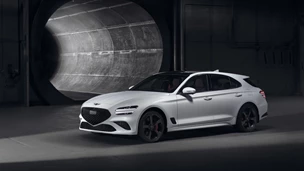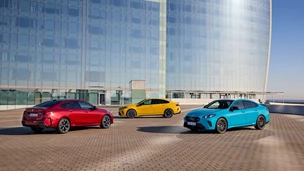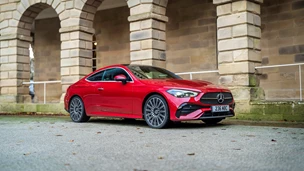The very name of the Qashqai+2 indicates the feature that Nissan has always treated as the selling point of the car. The two things that have been plussed, relative to the standard Qashqai, are the seats which make up the third row, but unless you're a school-run type of person this is probably not the most interesting part, since that row is strictly a sprog-only zone, most unlikely to be used by adults.Perhaps more important is the extra space which the greater length of the +2 creates. With the second- and third-row seats down, the regular Qashqai offers 860 litres, but in the +2 you get 915 litres, and depending on your lifestyle this might well be worth the extra £1500 you're asked to pay.One major regret is that, in designing the +2, nobody at Nissan thought to improve the Qashqai's rear visibility, which is quite extraordinarily bad. The daft rear side window design of the normal car is repeated in the +2, so reversing is equally perilous - or perhaps more so since the things you can't see and are liable to hit are now further away.Like the Qashqai, the +2 has a choice of front- or four-wheel drive. Unlike it, engine choice is limited to a pair of two-litre engines, a petrol producing 138bhp and a turbo diesel with a maximum of 148bhp. The car tested here is a front-wheel drive petrol, and while the reduced number of driven wheels means a saving of £1400 in the list price, and a slight improvement in fuel economy, I think I'd be happier with the 4x4 system myself.That's largely because the Qashqai can't fully deal with all the power it has. In most situations it feels fine, but heavy use of the throttle in mid-corner can cause it to come over all wobbly, which is not the case in models where the power is distributed among all four wheels. Perhaps because of the extra weight, the 4x4 also has slightly better ride quality: the test car was apt to become very jiggly when it was driven - even fairly slowly - over a rapid series of bumps.Choosing the diesel engine rather than the petrol has the familiar result of adding another £1400 to the price but improving fuel economy by about 9mpg on the combined cycle and lowering CO2 emissions by 20g/km. The economy issue becomes important only if you're planning to do a lot of long journeys (an unlikely scenario if you're in the school-run brigade), while the CO2 difference is worth £40 a year in VED at the moment and may rise to £60, depending on what decisions are finally made about the tax structure.The test car came in middle-of-the-road Acenta trim, which includes cruise control, automatic wipers and headlights, heated and folding door mirrors, rear parking sensor (thank heavens for that), 17" alloy wheels, dual-zone climate control air-conditioning, leather steering wheel and gearknob, a height-adjustable driver's seat and many other items which your local Nissan dealer will be happy to show you. The Visia and Tekna models with the same engine and front-wheel drive cost £1600 less and £1150 more respectively.The +2 has not been put through the Euro NCAP crash test programme, but the "short" Qashqai achieved a record-breaking result for adult occupant protection in May 2007, and there's no reason to believe that the +2 would behave any differently. All other matters aside, that's a good reason for considering it if you want a competent small MPV with decent luggage space and the ability to carry seven people. Engine 1997cc, 4 cylinders Power 138bhp Fuel/CO2 33.6mpg / 197g/km Acceleration 0-62mph: 10.5 seconds Top speed 118mph Price £18,749 Details correct at publication date

Our Rating



